When it comes to maximizing your workout, pre-workout supplements have gained significant popularity among fitness enthusiasts. These supplements are designed to provide an energy boost, enhance focus, and improve performance during exercise. However, a common question that arises is whether it is safe to take pre-workout on an empty stomach. In this article, we will explore the effects of taking pre-workout supplements without eating beforehand and discuss the benefits, drawbacks, and alternatives to consider.
Table of Contents
ToggleWhat happens when you take pre-workout on an empty stomach?

Taking pre-workout on an empty stomach can have both positive and negative effects on your body. On one hand, consuming pre-workout without any food in your system allows for quicker absorption and may result in a faster onset of its effects. This can be beneficial if you’re short on time and need an immediate energy boost. However, it’s important to note that without any food to slow down the absorption, the stimulants in pre-workout supplements can hit your system harder, potentially leading to jitters, increased heart rate, and even digestive discomfort.
Additionally, taking pre-workout on an empty stomach may also cause a rapid increase in blood sugar levels, especially if the supplement contains carbohydrates or sugars. This sudden spike in blood sugar can provide a quick burst of energy but may be followed by a crash, leaving you feeling fatigued and drained during your workout. It’s essential to consider these potential effects before deciding to take pre-workout on an empty stomach.
The benefits and drawbacks of taking pre-workout on an empty stomach
While there are potential benefits to taking pre-workout on an empty stomach, such as quicker absorption and faster onset of effects, there are also drawbacks to consider. One of the main drawbacks is the increased risk of experiencing side effects, especially if you’re sensitive to stimulants. When taken without food, the stimulants in pre-workout supplements can have a stronger impact on your body, leading to increased heart rate, restlessness, and even nausea.
Furthermore, without any food in your stomach, the energy boost provided by pre-workout supplements may not last as long. This can be problematic if you’re engaging in a longer workout session or if you’re looking for sustained energy throughout the day. It’s important to assess your individual needs and goals before deciding whether taking pre-workout on an empty stomach is the right choice for you.
Factors to consider before taking pre-workout on an empty stomach
Before taking pre-workout on an empty stomach, there are several factors you should consider. Firstly, it’s important to assess your personal tolerance to stimulants. If you’re someone who is sensitive to caffeine or other stimulants, taking pre-workout on an empty stomach may not be the best idea, as it can lead to increased jitters and restlessness.
Additionally, consider the duration and intensity of your workout. If you’re planning on engaging in a high-intensity or long-duration exercise session, having some food in your system before taking pre-workout can provide sustained energy throughout your workout. On the other hand, if your workout is shorter and less intense, taking pre-workout on an empty stomach may be more suitable.
Lastly, listen to your body. Pay attention to how you feel after taking pre-workout on an empty stomach. If you experience discomfort, increased heart rate, or any other negative effects, it may be a sign that your body doesn’t respond well to this practice. It’s crucial to prioritize your health and well-being when making decisions about your workout routine.
Alternatives to taking pre-workout on an empty stomach

If you’re hesitant about taking pre-workout on an empty stomach, there are alternatives to consider. One option is to consume a small, balanced meal or snack before your workout. This can provide you with the necessary nutrients and energy to fuel your exercise without the potential side effects of taking pre-workout on an empty stomach.
Alternatively, you can choose pre-workout supplements that are specifically designed to be taken on an empty stomach. These supplements often contain ingredients that are easier to digest and less likely to cause digestive discomfort. It’s important to carefully read the labels and choose a product that aligns with your goals and preferences.
Pre-workout nutrition and meal timing
While the focus of this article is on taking pre-workout on an empty stomach, it’s worth mentioning the importance of pre-workout nutrition and meal timing. Consuming a well-balanced meal or snack before your workout can provide the necessary fuel to optimize your performance and recovery.
Ideally, aim to eat a meal or snack containing carbohydrates, protein, and healthy fats about 1-2 hours before your workout. This timeframe allows for proper digestion and absorption of nutrients, ensuring that your body has the energy it needs to perform at its best. Experiment with different meal timing strategies to find what works best for you and your workout routine.
Tips for maximizing your workout with or without pre-workout on an empty stomach
Whether you decide to take pre-workout on an empty stomach or not, there are several tips you can follow to maximize your workout:
- Stay hydrated: Regardless of whether you take pre-workout or not, staying hydrated is crucial for optimal performance. Drink plenty of water before, during, and after your workout to prevent dehydration.
- Fuel your body with nutrient-dense foods: Prioritize whole, nutrient-dense foods in your diet to provide your body with the necessary vitamins, minerals, and energy to fuel your workouts.
- Get enough rest and recovery: Adequate rest and recovery are essential for muscle growth and overall performance. Make sure to prioritize sleep and incorporate rest days into your workout routine.
- Listen to your body: Pay attention to how your body feels during and after your workouts. If something doesn’t feel right, adjust your routine accordingly and consult with a healthcare professional if needed.
By following these tips, you can optimize your workout routine and achieve your fitness goals, whether or not you choose to take pre-workout on an empty stomach.
Potential side effects of taking pre-workout on an empty stomach
It’s important to be aware of the potential side effects of taking pre-workout on an empty stomach. As mentioned earlier, the stimulants in pre-workout supplements can have a stronger impact when consumed without any food. This can lead to increased heart rate, restlessness, jitters, and digestive discomfort.
Furthermore, some pre-workout supplements contain high amounts of caffeine, which can cause insomnia, anxiety, and dehydration. If you’re sensitive to caffeine or have any underlying health conditions, it’s crucial to exercise caution and consult with a healthcare professional before incorporating pre-workout into your routine.
Frequently Asked Questions
Is it safe to take pre-workout supplements on an empty stomach?
This article will address the safety concerns and potential effects of consuming pre-workout supplements without having a meal beforehand.
What happens when you take pre-workout without eating first?
Explore the physiological responses and potential benefits or drawbacks of taking pre-workout supplements on an empty stomach.
Can taking pre-workout on an empty stomach enhance workout performance?
Learn whether there are any performance advantages to taking pre-workout supplements without food and if this approach can help maximize exercise results.
Are there any risks or side effects associated with taking pre-workout before eating?
Discover the potential side effects and health considerations related to consuming pre-workout supplements on an empty stomach.
What’s the best way to time pre-workout intake for optimal results?
Understand the timing strategies for taking pre-workout supplements that can enhance their effectiveness while also ensuring safety.
Is taking pre-workout on an empty stomach suitable for everyone?
Find out if this approach is appropriate for individuals with different fitness levels, dietary preferences, and health conditions.
Are there alternatives to taking pre-workout on an empty stomach for maximizing workout benefits?
Explore alternative methods and dietary strategies that can help you achieve peak performance during your workouts without relying on an empty stomach.
Conclusion
In conclusion, the decision of whether to take pre-workout on an empty stomach ultimately depends on your individual needs and preferences. While there are potential benefits to taking pre-workout without eating beforehand, such as quicker absorption and faster onset of effects, there are also drawbacks to consider, including increased risk of side effects and shorter-lasting energy.
It’s important to consider factors such as personal tolerance to stimulants, workout duration and intensity, and individual bodily responses. Additionally, alternatives to taking pre-workout on an empty stomach, such as consuming a small meal or choosing specific pre-workout supplements, are worth exploring.
Ultimately, prioritize your health and well-being when making decisions about your workout routine. Listen to your body, experiment with different approaches, and consult with a healthcare professional if needed. By doing so, you can make an informed decision that aligns with your goals and supports your overall fitness journey.


